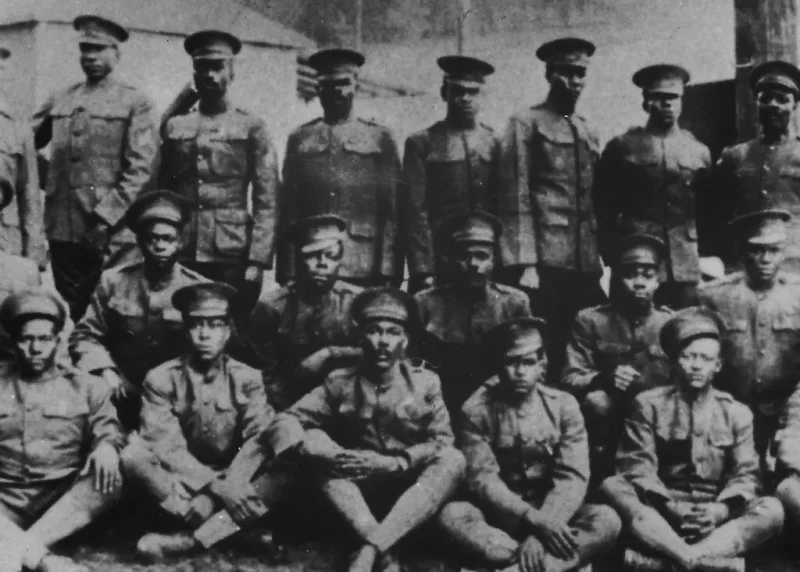Army Overturns Convictions of 110 Black Soldiers Charged in 1917 Riot
Share
Explore Our Galleries
Breaking News!
Today's news and culture by Black and other reporters in the Black and mainstream media.
Ways to Support ABHM?
By Michael Levenson, The New York Times
The Army acknowledged that the Buffalo Soldiers, 19 of whom were hanged, had been convicted in military trials that were tainted by racial discrimination.

On Dec. 11, 1917, Pfc. Thomas C. Hawkins and 12 other Black soldiers who had been convicted of mutiny and other crimes during a riot in Houston earlier that year were hanged. It was the single largest mass execution of American soldiers by the Army.
On Monday, more than a century later, the Army said it had formally overturned their convictions and those of 97 other Black soldiers who were found guilty of crimes associated with the riot. The Army acknowledged that the 110 soldiers, 19 of whom were executed, had been convicted in military trials that were tainted by racial discrimination.
The soldiers were members of the 3rd Battalion, 24th Infantry Regiment, an all-Black unit known as the Buffalo Soldiers. The Army said their records would be corrected, to the extent possible, to characterize their military service as “honorable.” They will be given proper gravestones acknowledging their Army service, and their descendants will be made eligible for benefits, officials said.
[…]
The Army acted after it received a petition requesting clemency for the soldiers that had been written by John Haymond, a historian, and Dru Brenner-Beck, a lawyer. They had cited trial transcripts and other records to show that the soldiers had been denied due process and other basic rights.
Read Jason Holt’s, nephew of Private Hawkins, response to the retroactive decision in the original article.
In more Army news, bases named after Confederates are changing to honor heroes instead.
Get more Breaking News.









Comments Are Welcome
Note: We moderate submissions in order to create a space for meaningful dialogue, a space where museum visitors – adults and youth –– can exchange informed, thoughtful, and relevant comments that add value to our exhibits.
Racial slurs, personal attacks, obscenity, profanity, and SHOUTING do not meet the above standard. Such comments are posted in the exhibit Hateful Speech. Commercial promotions, impersonations, and incoherent comments likewise fail to meet our goals, so will not be posted. Submissions longer than 120 words will be shortened.
See our full Comments Policy here.